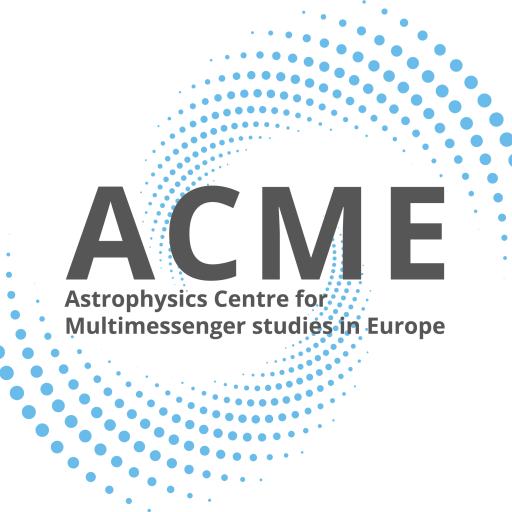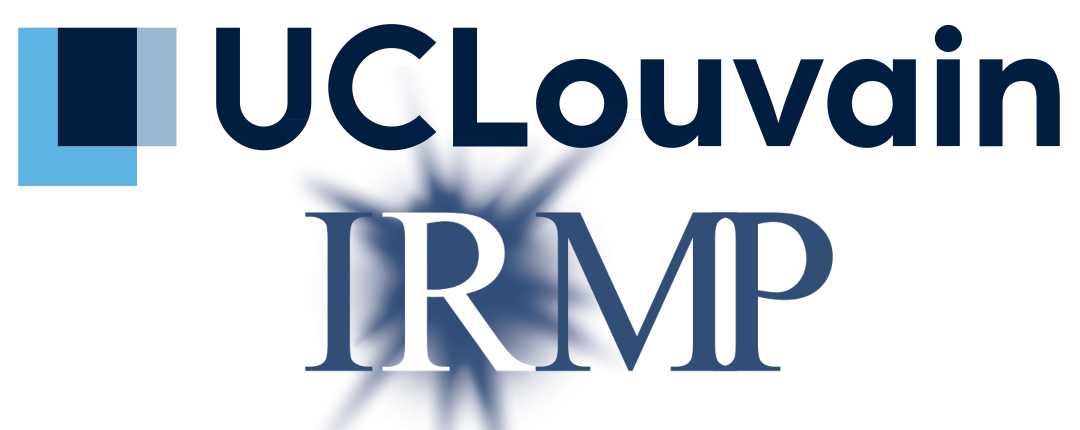The Research Institute in Mathematics and Physics (IRMP) of UCLouvain develops frontier research in Fundamental Physics and Pure Mathematics. The main purpose of this research is increasing and preserving knowledge in the most fundamental domains of Science. In particular, the institute hosts research on high-energy particle physics, cosmology, phenomenology, and theory of the fundamental interactions. It has a strong expertise in neutrino astronomy, being involved in IceCube and KM3NeT, and gravitational wave detections with Virgo as well as in multi-messenger astronomy.
Available expertise
IRMP at UCLouvain offers detailed knowledge on observations and data analysis of neutrino sources such as gamma-ray bursts, compact mergers, and active galactic nuclei. The group is part of both the IceCube and KM3NeT collaborations, therefore being in an ideal position to benefit from synergies between the two instruments.
The group offers expertise on the selection of neutrino events, with a focus on the reconstruction of GeV neutrinos using IceCube-DeepCore or single-DOM events in KM3NeT. Furthermore, the group is developing frameworks and tools to combine observations from multiple neutrino data sets into a single set of constraints on astrophysical parameters, especially in the context of transient phenomena. Members of the group have been especially working on the search for common sources of neutrinos and gravitational waves, benefiting from the involvement of IRMP scientists in the LIGO-Virgo-KAGRA collaboration. Finally, several researchers have been developing clustering algorithms, using graphs and more complex machine-learning-based approaches, to identify eventual subpopulations of astrophysical sources with promising neutrino emission.
Involved scientists
Gwenhaël Wilberts Dewasseige is a Professor of astroparticle physics at UCLouvain since 2021 and member of the IceCube and KM3NeT collaborations. She is mainly focused on MeV-GeV neutrinos coming from transient events, such as solar flares, core-collapse supernovae, and compact binary mergers. She is the co-lead of the Low-Energy Astrophysics Working Group in IceCube. She is a member of a Royal Academy of Sciences (Belgium).
Karlijn Kruiswijk is a PhD student at UCLouvain researching GeV-energy neutrinos with IceCube and how they can be used for transient neutrino astronomy. She is interested in the different processes that could create neutrinos in Gamma-Ray Bursts and in how they can be detected in the neutrino telescope. She is also co-tech lead of the Low-Energy Astronomy working group in IceCube.
Jeffrey Lazar is a postdoctoral researcher at UCLouvain. His research is centred around neutrino astronomy on the IceCube and KM3NeT experiments. In particular, Jeffrey focuses on novel searches for beyond Standard Model phenomena and Monte Carlo simulation.
Jonathan Mauro is a PhD student at UCLouvain, currently working on the search for GeV neutrinos from solar flares in KM3NeT. His work focuses on the development of detection techniques for low-energy neutrinos in the context of neutrino telescopes. Jonathan is a member of both KM3NeT and IceCube collaborations, and has a keen interest in data analysis and machine learning, he has developed clustering algorithms for the classification of solar flare events.
Émile Moyaux is a PhD student at UCLouvain. His research focuses on the theoretical characterization of the neutrino energy spectrum of transient events over a broad energy range, and on the simulation of the signal these events would produce in our detectors. He is also working on the detection of low-energy neutrinos in IceCube.
Christoph Raab is a postdoctoral researcher at UCLouvain and member of the IceCube collaboration. He is interested in multi-messenger astronomy with a broad energy range, currently focusing on short transients and analysis pipelines, including real-time. He has also searched for neutrino emission from blazar flares, developed corresponding statistical and numerical methods, and analysed ZTF data.
Leonardo Ricca is a PhD student at UCLouvain. His main interest is multi-messenger astronomy. He has expertise in data analysis and machine learning techniques applied to gravitational wave and neutrino experiments.
Marco Scarnera is a PhD student at UCLouvain. His research focuses on neutrino astronomy, Gamma-Ray Bursts (GRB) physics and multi-messenger astrophysics. His thesis aims at combining data from the ANTARES, IceCube, and KM3NeT neutrino telescopes, with data from electromagnetic and gravitational wave catalogues, to derive constraints on the neutrino emission from GRBs. His main interest is data analysis in HEP, astroparticle and GW experiments.
Per Arne Sevle Myhr is a PhD student at UCLouviain. He is actively involved in the IceCube and KM3NeT neutrino experiments, focusing on sub-GeV neutrinos from transient astrophysical sources. His research interests include understanding broadband neutrino emission from gamma-ray bursts and how current gigaton detectors can probe this emission.








